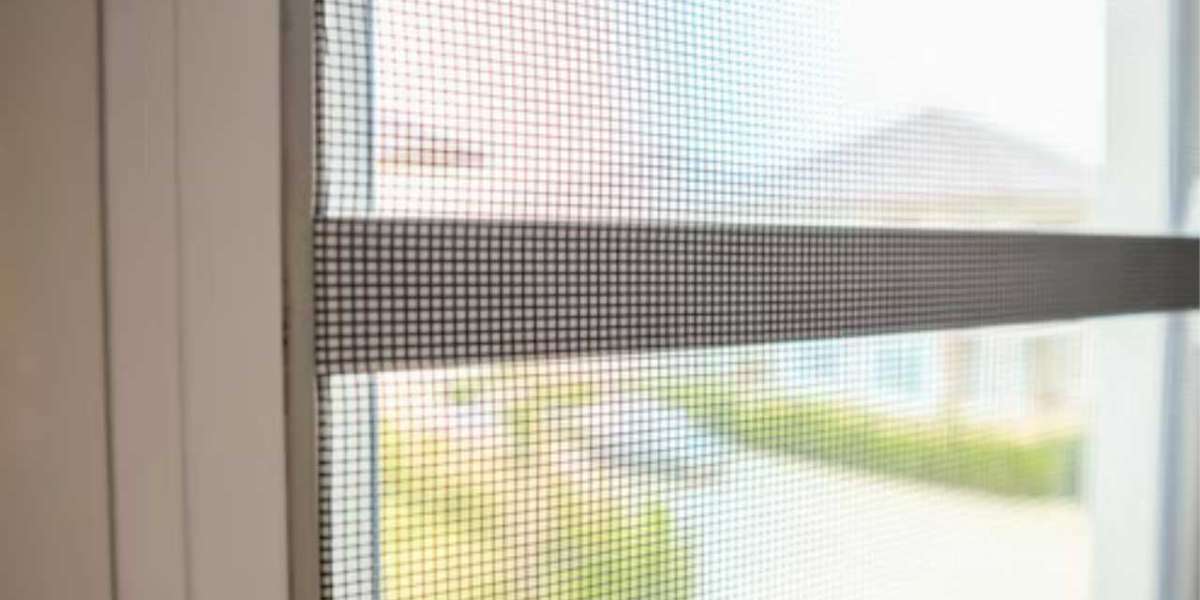.Mosquitoes can be a serious nuisance and, more importantly, a health hazard. From spreading diseases like malaria, dengue, and Zika virus to disrupting our peaceful evenings, mosquitoes are uninvited guests that we all want to keep out of our homes. One of the most effective and eco-friendly solutions to this problem is the use of mosquito mesh.
Benefits of Using Mosquito Mesh
The advantages of installing mosquito mesh go beyond just keeping mosquitoes out. Let’s explore why this simple barrier is so valuable for your home.
1. Protecting from Mosquito-Borne Diseases
Mosquitoes are vectors of various diseases, and mosquito mesh provides an impenetrable barrier that keeps these insects outside while letting you enjoy a safe, peaceful environment indoors.
2. Enhancing Air Circulation
Unlike other mosquito control measures like closed windows or chemical repellents, mosquito mesh allows for excellent air circulation. The finely woven mesh blocks mosquitoes but lets fresh air pass through, providing ventilation and keeping your home cool.
3. Allowing Natural Light While Offering Protection
You don’t need to choose between a well-lit home and a mosquito-free space. Mosquito mesh is designed to let sunlight filter in, giving you natural light during the day without the risk of mosquitoes sneaking inside.
4. Reducing the Use of Chemical Repellents
By installing mosquito mesh, you can minimize or even eliminate the need for harmful chemical repellents, sprays, or electric repellents. This makes it a safer choice for families, especially those with young children or pets.
Different Types of Mosquito Mesh
There are several types of mosquito mesh available, each with its own set of advantages and disadvantages. Let’s break down the most popular options:
1. Fiberglass Mosquito Mesh
Fiberglass is one of the most common materials for mosquito mesh. It’s affordable, rust-resistant, and durable, making it a popular choice for residential use.
-Pros: Easy to install, lightweight, resistant to rust
- Cons: Not as strong as metal mesh, can tear easily over time
2. Aluminum Mosquito Mesh
Aluminum mesh is known for its strength and durability. It is resistant to rust and corrosion, making it suitable for areas with high humidity or coastal locations.
Pros:** Strong, durable, weather-resistant
Cons:** More expensive, can dent easily
3. Stainless Steel Mosquito Mesh
For those looking for premium protection, stainless steel mesh is an excellent option. It offers superior durability and provides maximum security against mosquitoes and other insects.
Pros: High durability, rust-resistant, long-lasting
Cons: Higher cost compared to other types
4. Polyester Mosquito Mesh
Polyester mesh is often used for budget-friendly installations. It’s flexible and versatile, though it may not be as long-lasting as other materials.
Pros: Affordable, easy to install, flexible
Cons: Less durable, may wear out quicker over time
How to Select the Perfect Mosquito Mesh for Your Home
Fiberglass Mesh
Aluminum Mesh
Stainless Steel Mesh
Nylon or Polyester Mesh
Each type of mesh comes with its own set of benefits, so it's essential to consider your home's specific needs before making a decision..
Installation Methods for Mosquito Mesh
You can either choose a DIY approach or hire a professional for installation. For smaller areas like windows, DIY kits are widely available and relatively easy to install. For larger installations or complex systems like retractable or sliding door meshes, a professional may be necessary.
1. Window and Door Mesh Systems
Fixed frame systems are common, but retractable and magnetic systems are increasingly popular due to their convenience. Sliding mesh doors are perfect for larger doorways or patios, allowing easy access while keeping insects out.
Maintenance and Cleaning Tips for Mosquito Mesh
Maintaining your mosquito mesh is crucial to ensuring its effectiveness and longevity. Here’s how you can keep it in top shape:
Regular Cleaning: Dust and debris can accumulate on the mesh, so gently wipe it down with a soft cloth and soapy water. For metal meshes, use a brush to remove stubborn dirt.
-Prevent Mold: In humid areas, check for signs of mold or mildew. If needed, clean the mesh with a vinegar solution to prevent buildup.
The Cost of Mosquito Mesh: Factors to Consider
The price of mosquito mesh varies depending on the material, installation method, and size of the area covered. On average, fiberglass is the most cost-effective, while stainless steel can be on the higher end of the price scale. It's important to remember that opting for professional installation could increase the overall cost.
Mosquito Mesh as an Eco-Friendly Solution
Installing mosquito mesh reduces the need for chemical repellents, making it an environmentally friendly choice. By using natural ventilation and minimizing chemical use, you’re contributing to a healthier environment both inside and outside your home.
How Mosquito Mesh Contributes to Better Health
Keeping mosquitoes at bay is not just about comfort; it’s about health. With mosquito mesh, you can prevent life-threatening diseases such as malaria, dengue, and Zika, ensuring your family stays safe.
Conclusion
Mosquito mesh is a simple yet powerful solution to protect your home from mosquitoes. It’s eco-friendly, cost-effective, and allows for natural light and air circulation while keeping unwanted pests out. Whether you opt for fiberglass, aluminum, or stainless steel, there’s a mosquito mesh option for every home and budget.
FAQs About Mosquito Mesh
1. How often should I clean mosquito mesh?
It’s recommended to clean your mosquito mesh every 3 to 6 months, depending on the environment and dust accumulation.
2. Can I install mosquito mesh myself?
Yes, many DIY kits are available, especially for windows. However, for larger installations, a professional may be more suitable.
3. Is mosquito mesh effective against other insects?








